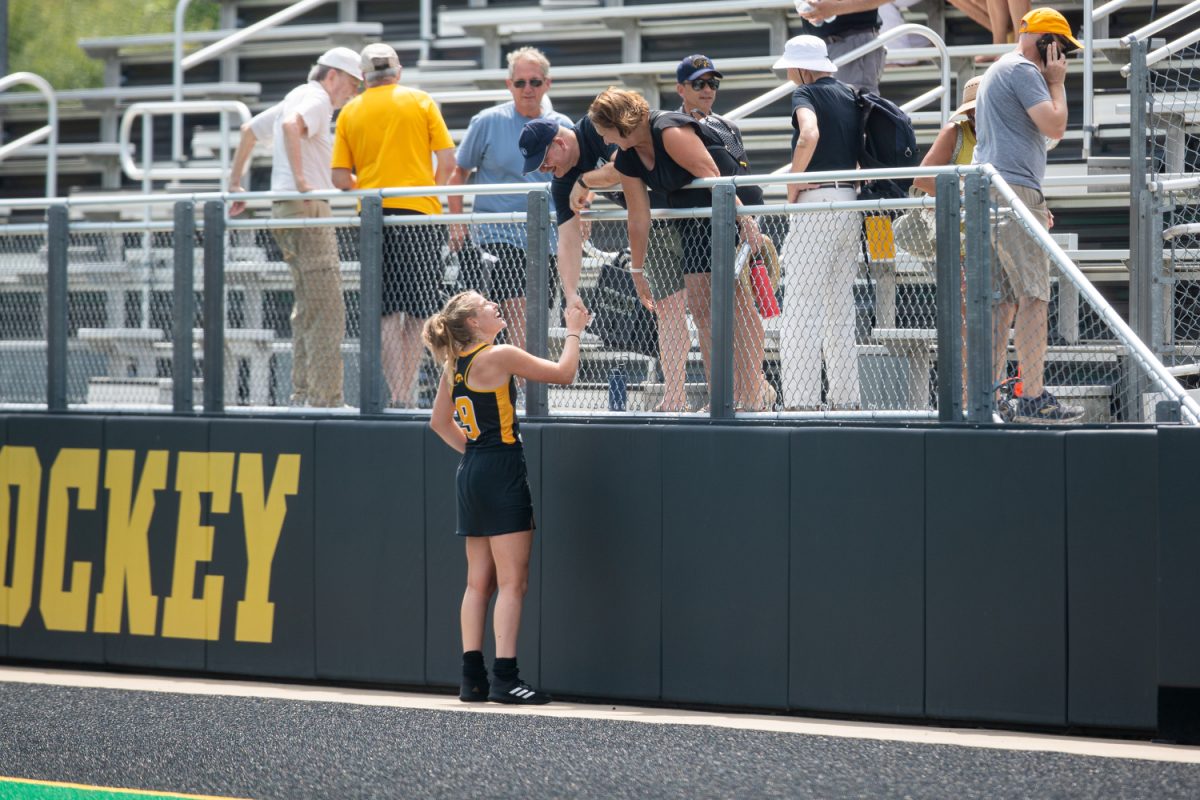What many people don’t know is that field hockey is more popular in Europe than in the United States. Athletes grow up with a stick and ball in their hands at an early age.
“Field hockey is one of the more popular sports in the world and over in Europe,” Iowa head coach Lisa Cellucci said. “They grow up playing it and just the skill level is really high.”
There is a significant difference between field hockey in Europe and the U.S.
The sport is broken down into clubs that are scattered around each country. Each club has a different level of skill. Players can enjoy the sport for what it is or play in more competitive leagues.
“You have many more clubs, levels, and intensity,” Iowa fifth-year forward Sofie Stribos said. “You can play for fun or play for some of the better teams.”
Even the style of play is different. Stribos says that in her home country of the Netherlands, the game is based on passing and making quick moves. But in America, it is more physical.
“From a very early age they are learning how to just eliminate the ball at whole different levels,” Cellucci said. “They are playing at that speed for a much longer period of time. I think here in America, what the internationals always get out of it is just the physicality, the endurance, and the fitness. So you kind of mesh the two and you have a really good product.”
International players have flooded the college landscape in field hockey across the U.S. Cellucci said that international recruitment is a big part of the college game to have international students on the team.
The Hawkeyes have a tradition of recruiting international talent — including eight athletes this season from England, Netherlands, and Belgium.
“We always want to recruit great domestic talent which is always our first go-to,” Cellucci said. “But we have seen what having a few international players has done for a team. It builds great chemistry, and it really helps elevate the game as well.”
Programs like Iowa use international coaching connections to get film and information on players coming up.
“We have a lot of context overseas,” Cellucci said. “My associate head coach Michael Boal is from England. He has some great contacts he grew up with and just wonderful coaches over there. We will actually use some recruiting services as well.”
The recruitment process starts at a young age for some players. Iowa midfielder Lieve Schalk originally got contacted by recruiting organizations at six years old.
“I got a direct message from an organization and they were like ‘Hey, we think America would be a good thing for you,’” Schalk said. “So I joined an organization, and they basically like just helped me to process and then like get emails from coaches.”
Cellucci hasn’t found it difficult to mesh together the talent she brings in from Europe. She and her coaching staff have stuck with recruiting athletes that fit the Iowa culture.
“When we are looking at talent, whether it’s international or domestic, we’re trying to make sure we find the right person that fits our culture and standards,” Cellucci said. “We aren’t just taking the best player. They have to fit the whole package.”



